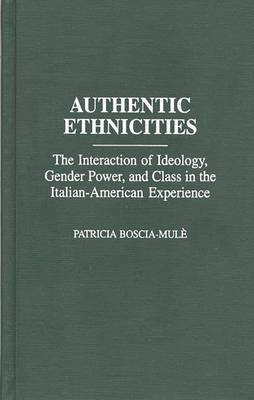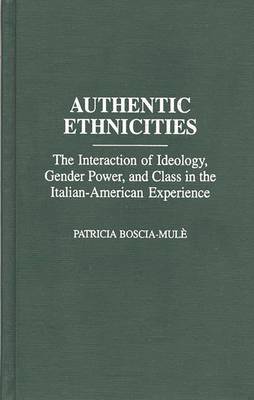
- Afhalen na 1 uur in een winkel met voorraad
- Gratis thuislevering in België vanaf € 30
- Ruim aanbod met 7 miljoen producten
- Afhalen na 1 uur in een winkel met voorraad
- Gratis thuislevering in België vanaf € 30
- Ruim aanbod met 7 miljoen producten
Authentic Ethnicities
The Interaction of Ideology, Gender Power, and Class in the Italian-American Experience
Patricia Boscia-MuleOmschrijving
The two mainstream views of ethnicity--as an instinctive, integral part of the self, or as a free, strategic selection of ethnic traditions--are rejected as simplistic in this volume, which is based on an empirical study of a three-generation sample of Italian Americans. The author argues that people's relationship with their ethnic culture is always a strategic compromise, intimately linked to the personal power resources they derive from their gender and social status. Class and gender emerge as two fundamental variables in the way people identify with, manipulate, or are constrained by ethnic ideologies. The findings of this study challenge many commonplace understandings about Italian Americans and about ethnicity as a social phenomenon and means of identification.
Specificaties
Betrokkenen
- Auteur(s):
- Uitgeverij:
Inhoud
- Aantal bladzijden:
- 192
- Taal:
- Engels
- Reeks:
- Reeksnummer:
- nr. 124
Eigenschappen
- Productcode (EAN):
- 9780313309465
- Verschijningsdatum:
- 30/04/1999
- Uitvoering:
- Hardcover
- Formaat:
- Genaaid
- Afmetingen:
- 147 mm x 217 mm
- Gewicht:
- 371 g

Alleen bij Standaard Boekhandel
Beoordelingen
We publiceren alleen reviews die voldoen aan de voorwaarden voor reviews. Bekijk onze voorwaarden voor reviews.











